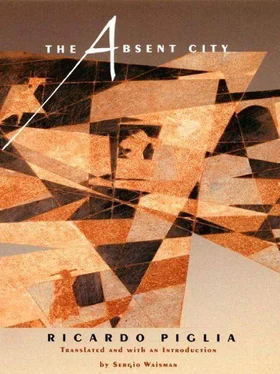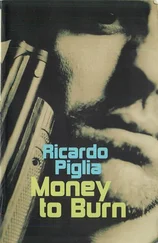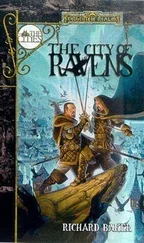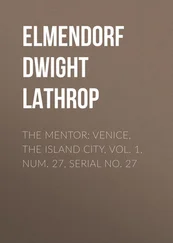“He had met her in that very same place. After traveling around and around the Province of Buenos Aires, he ended up right back where he had started. Macedonio fell in love with Elena before he met her, as he used to say, because they had told him so much about her that it was as if a spirit had come to visit him. Even many of the things he had done earlier in life were to impress her at a distance and to try to get her to fall in love with him, he would say. He always thought that his passion is what made her ill, he always thought it was his fault that she died. Macedonio saw her for the first time at a cousin’s house the day she turned eighteen, and again by coincidence one afternoon on a street in Azul. This second meeting proved to be definitive. He had gotten off the train because he was doing an experiment having to do with measuring the length of thoughts. He got off there without knowing where he was because he had already traveled the number of leagues needed for his thoughts, and had decided to send a telegram from there saying he would be coming back late. When he left the post office he sat down at a bar to have a brandy, and then walked around the corner and ran into Elena, who was looking at the window of a shoe store, as if she had been placed there just so Macedonio would find her. She started to laugh because she thought it was funny to see that man dressed in a white shirt and a dark suit at siesta time, as if he were sleepwalking in a lost town in the middle of the Pampas. He looked like a seminarist going out to ask for alms for the poor of the parish. And I was asking for alms, Macedonio would say, because she gave me the grace of her beauty and of her intelligence, bright as the morning sun. He invited her to have tea with him at the café in the train station, and from that afternoon on, they were together until the day she died.”
“Elena saw her death coming. Even though no one was able to find a single symptom of any known illness, even though Macedonio Fernández was really the one who was perpetually ill, and who tried extravagant systems of gaucho medicine, such as drinking fermented milk and soup, and never took any chemical medicines, and even though he was the one who experimented with medical knowledge, she was the one for whom death was imminent. That is why her illness and Elena’s end and Macedonio’s attempts at curing her with his medical knowledge were such a tragedy. Macedonio thought Elena’s death was an experiment that included his life in the future. A scientist does not personally participate in his experiments, that is what makes him different from a mystic. But Macedonio participated until the very last moment in Elena’s illness, trying to cure her. To give you an idea, it would have been as if Einstein had gone personally to Hiroshima to test his theoretical hypotheses on the structure of the atom. When Macedonio finally realized he had been defeated, that life was a horrible erosion destined to kill everyone off one by one, and that he was unable to stop the illness, and that it was even useless for him to try to get sick in her place, he agreed to have her taken to the hospital. He circled about the pavilions and looked through the windows of her room, from the outside, not daring to go in. He went around the gardens and waved at her through the glass, not daring to go in and see her die. From then on he hated all doctors and scorned medicine, which he considered to be a hopeless science, incapable of fulfilling its mission of preventing human beings from dying. Doctors are always failures, it is only a matter of giving them enough time. They have never been able to save anyone from death. They are arrogant imbeciles, precisely because they have never succeeded and have never been able to save anyone. She was lying in a bed in a hospital and Macedonio looked in through the window, and waved at her from the other side, and she smiled back without any strength left.
“And that is how Elena died, frail and delicate as happiness itself.
“The end was so horrible and so interminable that Macedonio remembered everything — the cretonne couches in the waiting room, the physical impossibility of going to the bed where Elena’s body lay in pain — with the distinct feeling of being in a dream and being unable to wake up from it. In the waiting room there were other men waiting at sunrise for other agonies to end. They smoked and stared into space in a time without time, where what one waits for is what people who are distanced from the pain refer to in resignation as ‘the inevitable.’ Until one afternoon her brother Alfredo came down the corridor toward the waiting room, and Macedonio saw his face, which had been his father’s face, and gestured for him to stop, and Alfredo leaned against the white tiles of the wall and watched him walk away. He would not be back, let his dear kids grow up as bastards, he wanted to negate everything that would remind him that she had left this world. Elena’s death (she was twenty-six years old) was an unexplainable event, it belonged to a parallel universe, it had occurred in a dream. (He dreamt that she was killed in a field of straw by a group of tigers.) As if he had paid a man who was coming down a dirt path in the dark with a lantern and handed him her body for him to hold. In exchange for what? It was a deal. He thought that sacrifices were actions that maintained the order of the universe. They were not public (they had ceased being public), but they still had to be performed, and instead of arrogant theatrical ceremonies they were now being performed on innocent and beautiful victims in white hospital rooms. If this was the case, then there was still hope. The sacrifice had already been consummated and he decided to place himself at the center of an experiment. I was married around that time, and my wife became very good friends with Macedonio — he was polite and courteous with women, a seductive man, friendly, incredibly intelligent, anyone who knew him will tell you that. A first-class intelligence, he would discern paradoxes instantly, tautologies, I remember that one of the first things he said to me was that he was interested in William James because James studied beliefs. Philosophers, he says to me, are generally interested in tautologies (in other words, in mathematics and formal logic), or in proofs (events and verifications), but not in absent reality. I can still hear him, that soft firm voice of his.
“ ‘Absence is a material reality, like a hole in the middle of the grass.’
“After Elena’s death, he could not go on living, and yet he did go on living. ( Io non mori e non rimasi vivo, is how Dante cried.) He told me that he remembered a Russian student who had had a bomb blow up on his body because he had not wanted to kill an innocent family that was crossing the street (the mother, the children, the French governess) when he was about to carry out an assassination attempt on the chief of police in Odessa. He met him in Adrogué, years later, old and completely disfigured by the explosion. He was like a ghost. When a man loses the woman he loves he is like the man who has a bomb blow up on his body and does not die. That is why Macedonio thought that the impetuous Rajzarov was like his brother, that Russian who was made more of metal than life. His steel teeth sparkled when he spoke, he had a silver plate in his head, a gold lattice interwoven like a three-dimensional tattoo held together the few strands of cartilage and bone that were left in his right knee — a man-made badge of pain that he would always recall simultaneously as a painful memory and as a circle of liberating fire, as a medal of honor that he carried about with the utmost pride. For it was invisible, recorded inside his body. An operation in the dark that lasted four hours, on the Eastern front, in a basement of the organization in Crimea, they did not have any sulphamide, or any anesthesia, no wonder he was so proud. That is how Macedonio had ended up, metallic, impaired, held together by operations and prostheses, the same pain and the same body artificially reconstructed, because Elena was suddenly absent. Frozen, made out of aluminum, walking as if his arms and legs did not belong to his body, like a metal doll, he was unable to smile, he could not raise his voice. ‘There is nothing left that does not hurt.’ ”
Читать дальше












